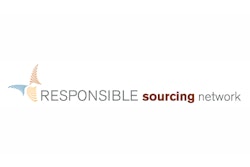San Francisco—Oct. 23, 2014—Retailers and apparel brands are taking action to prevent Uzbek cotton from entering their supply chains. Markets for Uzbek cotton sourced with forced labor continue to diminish as consumers become more aware of the human rights violations that occur during the Uzbek cotton harvest, with over 4 million Uzbek citizens forced to pick cotton under threat of penalty.
These citizens include nurses, civil servants, and teachers who are forced to leave their hospitals and classrooms to pick cotton or pay hefty fines. “I worked as a teacher for only one year, but I regretted I chose this position already a thousand times,” stated an Uzbek teacher in reference to picking cotton, who sent a letter to the Ozodlik radio station.
Due to the pressure on the Uzbek government by the international community, there was some success in reducing human rights violations. Finally, after five years of coordinated advocacy, children ages 7 to 15 are almost completely absent from the fields and the International Labour Organization (ILO) was allowed to monitor the cotton harvest for the “worst forms of child labor” last year. Much of the international pressure came from retail companies who signed Responsible Sourcing Network’s (RSN’s) Cotton Pledge, committing to not use Uzbek cotton harvested with forced labor in their products. The most recent of the multi-national retailers to sign the pledge is Tesco, the second largest retailer in the world.
“Tesco was one of the first retailers to ban the use of Uzbek cotton in the supply chain in 2007 and we are now very proud to be a signatory to the Cotton Pledge,” said Giles Bolton, responsible sourcing director for Tesco. “Eliminating cotton picked with forced labor is a critical step in the responsible sourcing process, and this, as well as eradicating other human rights abuses buried deep in global supply chains, requires concerted and coordinated efforts.”
However, even though the youngest children are no longer in the fields, a larger number of older students and adults are working as forced laborers in their place, and retailers do not want to have any part in supporting the repressive system.
“I applaud Tesco and the other retailers and brands for maintaining their commitments to avoid cotton from Uzbekistan,” stated Patricia Jurewicz, director of Responsible Sourcing Network. “Having the largest retailers in the world standing united shows that they are committed to doing their part to end forced labor, both of children and adults.”
Retailers and brands have the power to decide where to source their products and are urged to sign the Cotton Pledge if they haven’t yet. With a growing majority of global retailers and brands pledging not to use Uzbek cotton, the government of Uzbekistan will be pressed to dismantle its orchestrated system of forced labor, and students, teachers, and civilians will be able to continue their normal lives.









